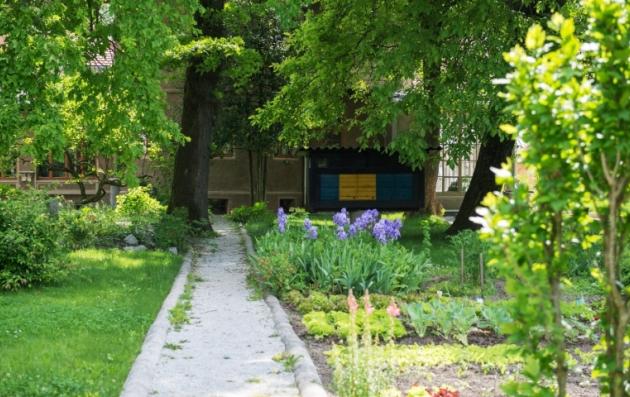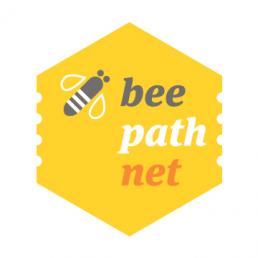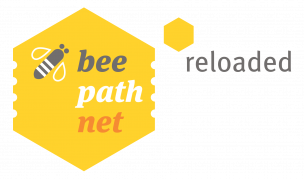Date of label : 02/06/2017
-
Ljubljana , Slovenia
-
Size of city : 292.988 inhabitants
Previously transferred

Summary
The Bee Path was opened in 2015 by the city of Ljubljana (SI), a municipality aware of the importance of pollinators for the sustainability of cities. The path is designed in such a way that visitors can comprehend the importance of bees for our survival and our food safety, discover the necessity of honey in our daily diet, but also find out more about the city's beekeeping culture. Various stakeholders are involved in the initiative: educational, cultural and health institutions, businesses, NGOs, and of course, beekeepers. As a matter of fact, two-thirds of the total surface of Ljubljana are rural areas, in which 826 farms operate. The city puts great emphasis on self-sustainability. By doing so, Ljubljana tries to shorten food supply chains and ensure food sovereignty.
The solutions offered by the good practice
The City of Ljubljana is firmly linked to beekeeping. Around 300 beekeepers maintain more than 4 500 beehives housing as many as 180 million bees. In the Strategy for Rural Development of the City of Ljubljana (2014-2020), the quality of agriculture and forestry goods, with the aim of self-sufficiency, is one of the important goals which should be achieved by an increase of beekeeping in rural and urban areas. There is a support system for bees, and recommendations for all residents that want to keep bees in urban areas. Within the Bee Path program, the urban beehives and bee stands have been designed to meet the demands of urban space. The city has also planted melliferous plants and trees with an emphasis on indigenous plants. Thus, the biodiversity has been maintained, and due to the higher number of pollinators, the self-sufficiency of the city has risen. The city administration and Ljubljana Tourist Board have created a bee-keeping education trail for tourists that connects the main locations of Ljubljana’s bee-keepers. Numerous promotional actions and presentations create bridges of understanding between beekeepers and citizens.
Building on the sustainable and integrated approach
The city encourages ecological good practices in beekeeping. Besides maintaining forest areas in the city, new boulevards and perennial plants on public green areas are planted. By co-financing bee associations in Ljubljana, the level of professional competence of beekeepers has risen.
The Bee Path is also a good practice in the cities' circular economy, where all partners use ecological and reusable materials. We are also upgrading the content with the story of wild pollinators, and building environment-friendly wooden beehives with green roofs.
The main focus of the Bee Path is children. All beekeeper associations have beekeeping clubs in schools or at home. Here, children learn about the importance of bees for our survival, develop a working attitude, socialise and acquire knowledge of the importance of honey for our health. Students also learn the basics of apitherapy in 10 beekeeping clubs, including over 200 students, currently operating within the city.
Special attention is also given to the elderly. We carry out various educational activities, field trips and lectures, where experts talk about the importance of honey and bee products for their health. All activities on the Bee Paths (promotion, Honey Day, events, training, networking, collaboration, etc.) are a small part of the efforts of the Beekeepers Association of Slovenia, to promote the 20th of May as World Bee Day by the UN.
Based on a participatory approach
Besides the city of Ljubljana, the Bee Path includes five beekeeper associations, the University of Ljubljana, the Faculty of Architecture, the Biotechnical Faculty, the National Farming Institute, the University Botanic Gardens of Ljubljana and the Biotechnical Educational Centre of Ljubljana. Very important are also private companies (BTC City, Park Hotel, Ljubljana Pharmacy, Ljubljana Castle, Medex), NGO’s (Beyond a Construction Site Community-Based Garden, Eneja Institute-social enterprise, Beekeeper Society Barje, Urban Beekeeper Society) and several cultural institutions. The most important however are the 13 beekeepers. Members of Bee Path connect with each other and build new, successful stories. Pedagogical programs, prepared by the city, connects four partners – the Botanical Garden, the BIC Ljubljana (a culinary educational centre), the Plenik house (museum) and the Biotechnical faculty. The programme presents four contents – honey plants, sensory properties of the honey, bee cultural heritage and the life cycle of the bees. The Bee Path concept is designed to cover any possible level, from the education of the young to the training of beekeepers, to connect cultural and natural heritage, to promote different public events (Honey day) where citizens get to know bees, their products and their importance for our existence. Beekeeping also became a tourist attraction in Ljubljana.
What difference has it made?
As the good practice city, Ljubljana has used the BeePathNet project to:
- Prove that the BEE PATH good practice can be transferred to other cities and can sucesfuly function in other cultural, natural and operational environments. Subsequnetly, proving that the Bee-friendly Cities Network could be established on a transnational level.
- Develop BEE PATH Transfer Guidelines as a tool for attraction and expansion of the Bee-friendly Cities Network.
- Evolving the ULG with new ULG members and enablin ULG members to network and exchange experiences with ULG memebers from other cities, thus reenforcing teir efforts.
- Develop a Long-term BEE PATH Development Vision and open the discussion with ULG memebers about its future development and potential changes in its management model.
- Finalize the touristic/educational path, mark it is space, develop a map for visitors and promote it amongst visitors and citizens.
- Upgrade the educational programme and kick-off the api-kindergarten programme in Ljubljana.
- Start cooperating with other cities in Slovenia and kick-off the trasfer proces on the national level with the City of Maribor.
Transferring the practice
Over 2.5 years, Ljubljana has led the BeePathNet network, transferring its practice to 5 other cities: Cesena (Italy), Amarante (Portugal), Bydgoszcz (Poland), Nea Propontida (Greece), 12th District of Budapest – Hegyvidék (Hungary). You can, in particular, check Bydgoszcz’s Good practice here. The approach was based on 9 modules which adaptable to each city’s reality: Active partnership establishment and management, Higher municipality administration involvement, Awareness rising and promotion for citizens, Development of a “Bee Path” as a tourist and/or bee-product promotional platform, Education programmes for kindergartens and primary schools, Biodiversity maintenance, Support mechanisms for new bee-products, Conceptual design of a local product promotion and selling point and Awareness increase monitoring system.The modules are all available in the form of the BEE PATH Tranfer Guidelines on the URBACT website. There you can also find BeePathNet Lerning Logs providing transfer journeys and key results of all involved cities. Furthermore, Ljubljana sucesfully adressed other cities in Slovenia and even kicked-off off the transfer proces on the national level with the City of Maribor. With succesfull implementation of the BeePathNet project, Ljubljana sucesfully established the Bee-friendly Cities Network – an initiative with substantial growth potential thanks to URBACT and its transfer networks operational model.
-
452_Ljubljana_Gpsummary.pdf(PDF, 127Ko)


